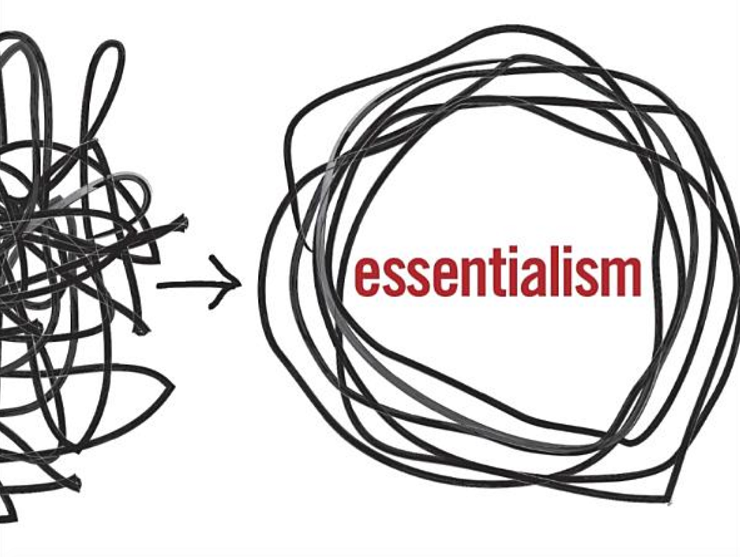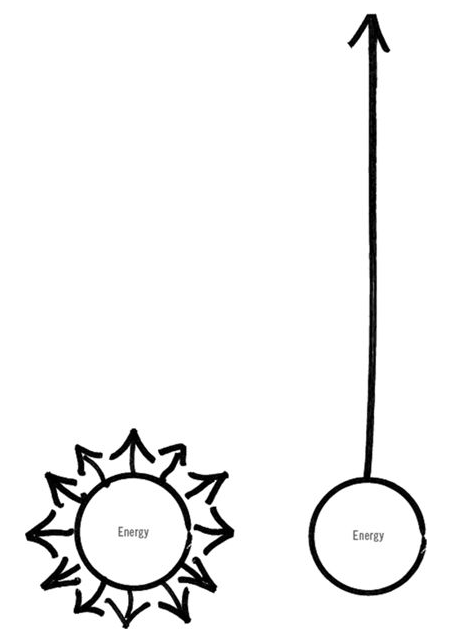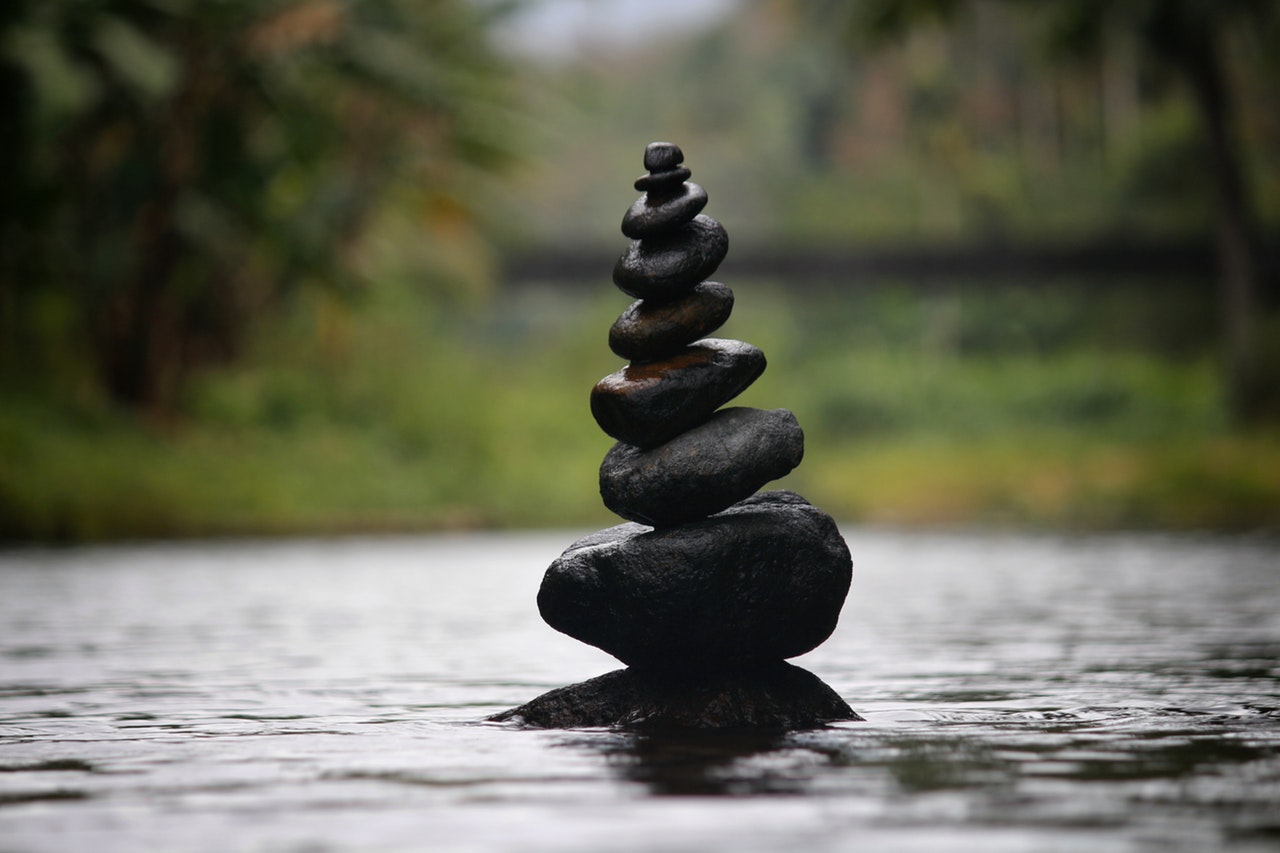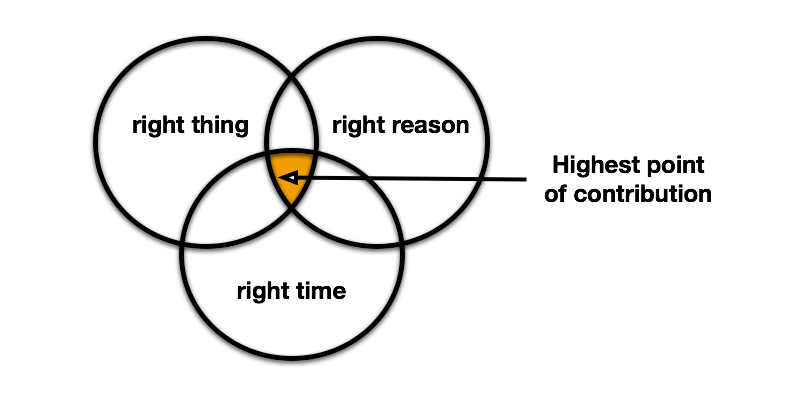
It started with a sharp pain in the belly.
My wife complained about a recurring pain in her abdomen that seemed to get worse every minute. So we went to the hospital, and the doctor advised us to get an X-ray.
The diagnosis: appendicitis.
This happened 2 years ago. I had a job working at a startup in San Francisco. It was a challenging role, but I was having fun. At the time, I was also deeply interested in personal growth, regularly listening to a top self-improvement podcast and experimenting with weekly and daily planning to manage my workload.
That week, I was preparing to finish an important report. So when the doctor revealed the prognosis, I had a dilemma.
Should I go to work to finish the report, or should I stay with my wife for the surgery?
I was afraid that my boss wouldn’t understand my situation, so I decided to continue writing the report at the hospital. The problem was that our room had no Internet. And it’s hard to keep your focus when someone you love is in the operating room. This moment made it painfully clear how hard it is to focus on what really matters when your priorities aren’t clearly defined.
I ended up not finishing my work. My reputation was tarnished.
In the book titled Essentialism: The Disciplined Pursuit of Less, New York Times best-selling author Greg McKeown—one of today’s most sought after speakers and widely regarded among sought after speakers in leadership and productivity—shares a similar experience. His work has been referenced across countless talks, interviews, and even a self improvement podcast, earning recognition alongside other york times bestsellers in the personal development space.
Greg McKeown, who is conducting doctoral research at the University of Cambridge, decided to go to the meeting but failed because his attention wasn’t there. Worst, he felt guilty because he missed an important milestone in his life. That painful trade-off inspired the philosophy behind essentialism and later tools like a planner based system that planner introduces a more intentional way of working.
Today, many people apply these principles using an essentialist’s daily planner, which includes a day’s planning grid, daily planning templates featuring clarity over busyness, and a format that encourages users to fill it out consecutively. A content rich planner helps translate essentialism into action by being filled with reflective prompts, supporting everything from a quarterly offsite that’s filled with intention to everyday execution.
These tools are often featuring greg’s popular power methods, including greg’s popular power half hour focus sessions, helping individuals build a sustainable rhythm for decision-making and prioritization—something I wish I had embraced sooner.
Greg McKeown also holds an MBA from Stanford University, further showcasing his academic credentials and expertise.\
What is Essentialism? Every Day Guide to Accomplishing Tasks
What is essentialism? According to McKeown, essentialism is the deliberate practice of saying no and focusing only on what is truly important.
He adds that only when you permit yourself to stop trying to do it all and stop saying yes to anything can you make your highest contribution to the things that really matter.
Looking back, I realize it’s okay to say no. People, even your boss, will understand. In fact, when you get your priorities straight, people will respect you for it.
On the contrary, if you don’t prioritize your life, someone else will. This is the core message of essentialism. In this article, we’ll cover everything you need to know about essentialism.
A content-rich planner can help you prioritize essential tasks and achieve a better work/life balance.
The Essentialism Mindset
Essentialism: Priority vs Priorities
Did you know that the word priority didn’t have a plural form until the 1900s? The noun came into the English language in the 1400s in the singular form, and it stayed singular for the next five hundred years. It simply meant the very first thing.
But during the height of the industrial revolution, the plural form “priorities” was made up to outline the multiple important things workers had to do in the day.

Priority used to be a powerful word. Unfortunately, the word is almost like a cliché today.
Essentialism focuses on the priority, not the priorities. It’s about doing less, not more. The essentialist knows that less equals more. When you’re selective, you’re giving yourself more time to create high-quality work. The ‘Essentialism Planner: A 90-Day Guide to Accomplishing More by Doing Less’ is a tool designed to help users focus on essential tasks and achieve a better work/life balance. This ninety-day planner helps streamline productivity by emphasizing the principles from the book ‘Essentialism’ by Greg McKeown.
On the other hand, the non-essentialist squeezes in everything. The result is more commitments, more stress, and poor quality work.
Warren Buffett is an example of an essentialist. He invests only on businesses that he understands, often making big bets on fewer opportunities and saying no to merely good ones. In fact, for every 100 great opportunities brought to him, he’d say no to 99 of them.
The Clarity Paradox
Have you wondered why successful people never make it to the next level? Why are successful people stretched too far or too thin? McKeown believes the reason is success.
According to McKeown, people don’t become very successful because of the Clarity Paradox, a situation which can be summed up in four phases:
Phase 1: When we have clarity of purpose, it leads to success.
Phase 2: When we have success, it leads to more options and opportunities.
Phase 3: When we have increased options and opportunities, it leads to diffused efforts.
Phase 4: Diffused efforts undermine the very clarity that led to our success in the first place.
So success becomes a catalyst for failure.
When you achieve a certain level of success, it leads to new opportunities and paths. It gets to a point where success becomes a catalyst for failure, leading to what is called the undisciplined pursuit of more.

The antidote, McKeown adds, is the disciplined pursuit of less, but better, exploring the critical things, doing what’s essential.
A practical tool to achieve this is the ‘90-Day Guide to Accomplishing,’ which helps individuals focus on fewer tasks to promote productivity and efficiency in both personal and professional spheres.
How to Avoid the Clarity Paradox

- Use more extreme criteria in making decisions. Search within yourself by asking more deep questions. Aim for the highest point of contribution by balancing the best of your talents, the market needs, and your passion.
- What is essential? Eliminate the rest. Breaking down the year into one manageable quarter allows individuals to effectively prioritize essential tasks and achieve a better work/life balance.
- Beware of the Endowment Effect, which is our tendency to value an item more when we own it. Instead of asking, “How much do I value this item or opportunity?” We should ask “If I did not own this item or have this opportunity, how much will I pay to get it?”
Essentialism Concepts That You Should Know

Essentialism requires a different mindset. It goes against the principles that society tells you to do. Here are some facts about essentialism.
- We have a choice. We can choose how to spend our time and where to use our energy.
- Everything is noise. Only a few things are essential.
- There are trade-offs to everything. We can’t have it all. We can’t do everything.
The Essentialism Planner includes reflective prompts and exercises designed to help individuals eliminate distractions and focus on what truly matters, thereby enhancing their work-life balance and productivity.
To fully embrace essentialism, you need to replace some assumptions in your life with three core truths:
- From saying “I have to” to “I choose to”.
- From saying “it’s so important” to “only a few things really matter.”
- And from saying “I can do both” to “I can do anything but not everything.”
Essentialism: Reflective Prompts and Questions That You Need to Ask Yourself
Before I walk you through the steps, here are some important questions that you need to ask yourself to attract essentialism in your life. Go through each question and answer them. Consider incorporating a personal quarterly offsite as a structured approach to self-reflection and planning. This practice can help you prioritize your life by engaging in reflective prompts and exercises, ultimately aiming to eliminate distractions and focus on what truly matters in both personal and professional settings.
- What do I feel deeply passionate about or what am I inspired by?
- If you could do only one thing with your life right now, what would you do?
- What is the very most important thing you should be doing with your time and resources right now?

How to Apply Essentialism in Your Life with a Ninety Day Planner

1. Realize You Have a Choice
We’re living in stressful times. We deal with many choices each day — no wonder why many people suffer from decision fatigue. The more choices we are forced to make, the more the quality of our decisions deteriorates. Know that between stimulus and response, you have a choice.
2. Define Your Purpose
To define your purpose, you need to reduce yourself to zero, eliminating everything else except for the thing that you’re passionate about. The great Mohandas Gandhi reduced himself to zero by focusing on liberating the oppressed. Doing what you’re passionate about will fulfill your purpose.
3. Focus on the Vital Few
Don’t major on minor things. What is the very most important thing you should be doing with your time and resources right now? You need to focus on the vital few and forget about the trivial many.
4. Say No
Learn to say a slow yes and a quick no. Everyone sells an idea, a point, or an opinion in exchange for your time. Master the art of saying no. We often say yes because it’s easier, but saying no will produce long-term benefits. Check out more tips on saying no below.
5. Prioritize Your Tasks
It’s easy to drown in the sea of to-do lists and priorities. It’s time to prioritize your tasks. Writing down your tasks on paper isn’t enough. You need to prioritize them according to importance and urgency. You can use Week Plan to see which tasks are essential and non-essential. The Essentialism Planner includes planning templates featuring Greg’s popular methods like the Power Half an Hour and 1-2-3 Method to help you prioritize important tasks and achieve better work/life balance.
6. Escape to Think
You need to establish a thinking time each day. This lets you see the things that truly matter to you. The problem is it’s hard to think when you’re busy at work or at home. Sometimes you need to escape in order to think. Create some space within your day to think of the choices and the trade-offs.
7. Learn to Play
Play fires up your brain and fuels your creativity. What are your favorite hobbies? Whether it’s playing a musical instrument and a sport or traveling and spending some time outdoors, play lets you see possibilities and broadens your perspective.
8. Protect Your Sleep Time
Rest so you can do the rest. Did you know that violinists sleep an average of 8.6 hours a day and nap 2.8 hours in the afternoon? We may not have the skills of a virtuoso, but science shows that sleep increases creativity and productivity. Sleep allows us to operate at the highest level and cope with the challenges of life.
Overcoming Obstacles
One of the biggest challenges in achieving our goals is the tendency to get bogged down in non-essential activities. These distractions can include constantly checking emails, attending unnecessary meetings, and getting sucked into social media. To overcome these obstacles, it’s crucial to develop a clear understanding of what is truly essential and what is not.
This requires a high degree of self-awareness and discipline, as well as a willingness to say no to non-essential activities. The Essentialism Planner can be an invaluable tool in this process and serves as a perfect companion for individuals looking to simplify their workload. Created by an author who studied at a leading university and is conducting ongoing research, the philosophy behind the planner has been adopted by organizations in 45 countries.
The Essentialism Planner provides a structured framework for prioritizing essential tasks and eliminating distractions. It is available through the official site and other retailers, and its thoughtful design means the planner helps you break complex goals into manageable actions. With features like goal-setting, prioritization, and time management, it helps individuals stay focused, on track, and intentional with their time.
Key strategies for overcoming obstacles include:
- Developing a clear understanding of what is truly essential: Reflect on your goals and values to identify what matters most.
- Eliminating non-essential activities: Be ruthless in cutting out tasks and commitments that do not serve your primary objectives.
- Prioritizing what is truly important: Use tools like the Essentialism Planner to organize and prioritize your tasks effectively.
- Staying focused and on track: Regularly review your progress and adjust your plans as needed to stay aligned with your goals.
- Saying no to non-essential activities: Learn to decline requests and opportunities that do not align with your essential priorities.
By implementing these strategies, you can overcome common obstacles and stay committed to your essential goals, leading to greater productivity and a more fulfilling life.
Takeaways from the Greg McKeown Podcast
- Essentialism is about choosing the vital few from the trivial many.
- To make the highest contribution towards the things that really matter, you need to stop trying to do everything and saying yes to everyone.
- If you don’t prioritize your life, someone else will.
- The more options we have, the more we feel distracted from what could be our highest level of contribution.
- Success can be a catalyst for failure. Avoid the undisciplined pursuit of more. Master the disciplined pursuit to less, but better.
- The million copy bestseller Essentialism has inspired people globally to focus on what truly matters, promoting improved work/life balance and personal development.

More Posts
New year, new branding
11 Ways to Cultivate a Time Management Mindset
Managing time is like mastering an art. It's about using your time wisely to get big results. With 1,440 minutes each day, every moment counts towards your success. To be organized helps you...
Top 9 Monthly Calendar Planners for Entrepreneurs
Entrepreneurs understand the need for reliable monthly planners to manage their busy schedules and maximize productivity effectively. Selecting the perfect planner can be daunting, with numerous options available. To simplify the process, we...